Related Research Articles
Cecil Antonio Richardson was an English theatre and film director, producer and screenwriter, whose career spanned five decades. He was identified with the "angry young men" group of British directors and playwrights during the 1950s, and was later a key figure in the British New Wave filmmaking movement.
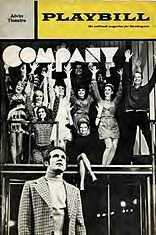
Company is a musical with music and lyrics by Stephen Sondheim and book by George Furth. The original 1970 production was nominated for a record-setting 14 Tony Awards, winning six. Company was among the first book musicals to deal with contemporary dating, marriage, and divorce, and is a notable example of a concept musical lacking a linear plot. In a series of vignettes, Company follows bachelor Bobby interacting with his married friends, who throw a party for his 35th birthday.
The Box is an Australian soap opera that ran on ATV-0 from 11 February 1974 until 11 October 1977 and on 0–10 Network affiliates around Australia.

Sid and Nancy is a 1986 British biographical film directed by Alex Cox, co-written with Abbe Wool, and starring Gary Oldman and Chloe Webb. The film portrays the life of Sid Vicious, bassist of the punk rock band the Sex Pistols, and his destructive relationship with girlfriend Nancy Spungen. The film also features supporting performances from David Hayman, Xander Berkeley, and Courtney Love.
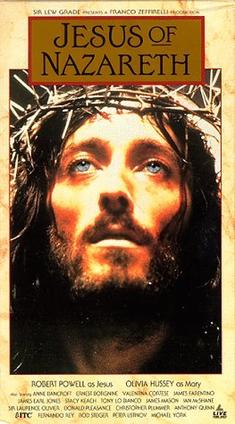
Jesus of Nazareth is a 1977 British-Italian epic television drama serial directed by Franco Zeffirelli and co-written by Anthony Burgess and Suso Cecchi d'Amico, which dramatizes the birth, life, ministry, crucifixion and resurrection of Jesus. It stars Robert Powell as Jesus, and features an all-star ensemble cast of renowned actors, including eight who had won or would go on to win Academy Awards: Anne Bancroft, Ernest Borgnine, Laurence Olivier, Christopher Plummer, Anthony Quinn, Rod Steiger, James Earl Jones and Peter Ustinov.
Esther Davis is an Australian actress and singer, best known for her roles as Phryne Fisher in Miss Fisher's Murder Mysteries and its film adaptation, Miss Fisher & the Crypt of Tears, and as Amelia Vanek in The Babadook. Other major works include a recurring role as Lady Crane in season six of the television series Game of Thrones, Sister Iphigenia in Lambs of God, and the role of Ellen Kelly in Justin Kurzel's True History of the Kelly Gang.
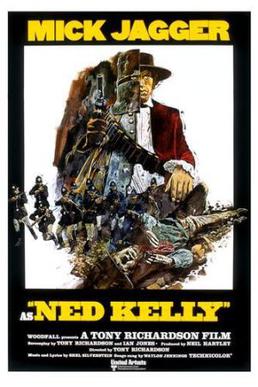
Ned Kelly is a 1970 British-Australian biographical bushranger film. It was the seventh Australian feature film version of the story of 19th-century Australian bushranger Ned Kelly, and is notable for being the first Kelly film to be shot in colour.
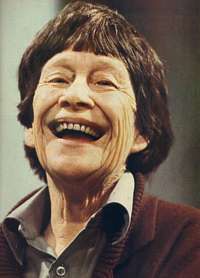
Sheila Mary Florance was an Australian theatre, television and film actress. She played numerous roles in the Crawford Productions before playing Dossie Rumsay in the rural series Bellbird but became best known internationally for her performance as elderly, alcoholic convict Lizzie Birdsworth in the television series Prisoner.

Alvin Purple is a 1973 Australian sex comedy film starring Graeme Blundell in the title role; the screenplay was written by Alan Hopgood and directed by Tim Burstall, through his production company Hexagon Productions and Village Roadshow.
The following lists events that happened during 1969 in Australia.
Norman James Kaye was an Australian actor. He was best known for his roles in the films of director Paul Cox.

Paulus Henrique Benedictus Cox, known as Paul Cox, was a Dutch-Australian filmmaker who has been recognised as "Australia's most prolific film auteur".
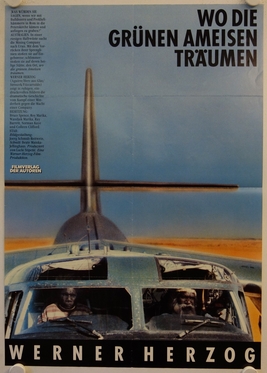
Where the Green Ants Dream is a 1984 English-language West German film directed and co-written by Werner Herzog, made in Australia. Based on a true story about Indigenous land rights in Australia, but slated as a mixture of fact and fiction, it only got a limited release in Australia, where it was not well received by critics; the film fared a bit better in Europe and North America.
The Queen's Sister is a 2005 British television movie directed by Simon Cellan Jones. The teleplay by Craig Warner is a semi-fictionalized account of the life of Princess Margaret, the younger sister of Queen Elizabeth II, from 1952 until the mid-1970s. It was produced by Touchpaper Television, part of the RDF Media Group, and was broadcast by Channel 4. It has been released on DVD by BBC Video.

Man of Flowers is a 1983 Australian film about an eccentric, reclusive, middle-aged man, Charles Bremer, who enjoys the beauty of art, flowers, music and watching pretty women undress. Werner Herzog has a cameo role as Bremer's father in flashbacks. The film was directed by Paul Cox and was screened in the Un Certain Regard section at the 1984 Cannes Film Festival.

Cactus is a 1986 Australian drama film directed by Paul Cox and starring Isabelle Huppert.

Exile is a 1994 Australian drama film directed by Paul Cox. It was entered into the 44th Berlin International Film Festival. The film was shot entirely on location in Tasmania.

It Takes All Kinds is a 1969 Australian crime drama film directed by Eddie Davis.
Illuminations is a 1976 Australian film directed by Paul Cox. It was Cox's first full-length feature film although he had made numerous shorts beforehand.
"The plane crash" is a storyline from the Australian television soap opera Neighbours that began on 24 October 2005 when an aeroplane, carrying several characters, crashed in Bass Strait after a bomb was detonated during the journey. The storyline aired as part of the show's 20th anniversary and would be the catalyst for several major storylines that aired the following year. "The plane crash" also saw the departures of three established characters: David, Liljana and Serena Bishop. The actors' departures had been announced in May 2005, but it was not confirmed they would depart during "The plane crash" until their last scenes aired.
References
- 1 2 3 Andrew Pike and Ross Cooper, Australian Film 1900–1977: A Guide to Feature Film Production, Melbourne: Oxford University Press, 1998 p. 319
- ↑ Tom Ryan, "Making Silence Speak: Interview with Paul Cox", Cinema Papers, July 1977 p. 18
- 1 2 David Stratton, The Last New Wave: The Australian Film Revival, Angus & Robertson, 1980 p. 197